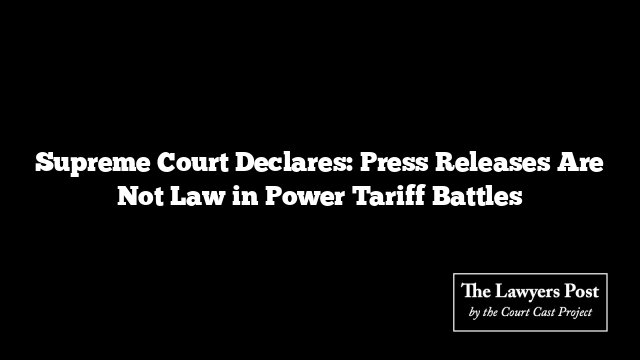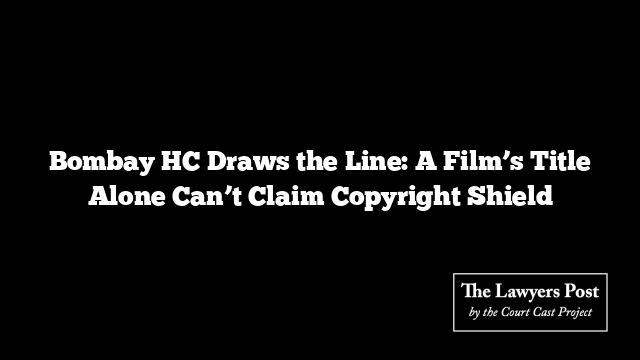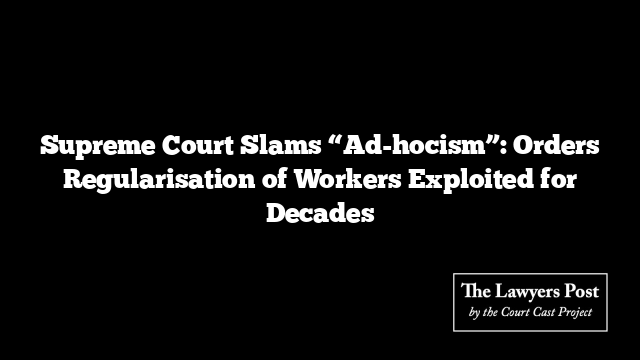In a ruling that draws a sharp line between policy talk and actual law, the Supreme Court has made it clear—government press releases and clarifications cannot be dressed up as a “Change in Law” under Power Purchase Agreements (PPAs).
The verdict came down on appeals filed by Nabha Power Limited (NPL) and Talwandi Sabo Power Limited (TSPL), who wanted compensation from the Punjab State Power Corporation Limited (PSPCL). Their argument was simple: government communications, including a press release about benefits for mega power projects, had altered the fiscal framework and triggered a “Change in Law” clause. The Court wasn’t convinced.
The bench, led by Chief Justice BR Gavai and Justice Augustine George Masih, upheld the earlier finding of the Appellate Tribunal for Electricity (APTEL), which had already dismissed such claims. APTEL had ruled that unless there’s a proper statute, rule, or notification published in the official gazette, nothing qualifies as a change in law. Press releases, the tribunal said, are just policy clarifications with no binding force.
The Supreme Court reinforced that view. Justice Masih, writing the judgment, emphasized that administrative announcements—however impactful in tone—do not carry the weight of law. The Court pointed to its earlier precedent in Nabha Power Limited v. PSPCL (2018), which had also drawn the same distinction: only formal customs notifications, not communications or press notes, can be treated as law.
In this case, the Court noted that the actual “Change in Law” occurred only when customs notifications were officially issued on December 11 and 14, 2009. The pre-bid press release of October 1, 2009, no matter how promising it sounded, had no legal muscle. “The press release cannot be stretched into law under the PPA,” the bench said, shutting down the generators’ plea for compensation.
With that, the appeals by NPL and TSPL were dismissed, reaffirming that in matters of power contracts, it takes more than a press note to change the rules of the game.





